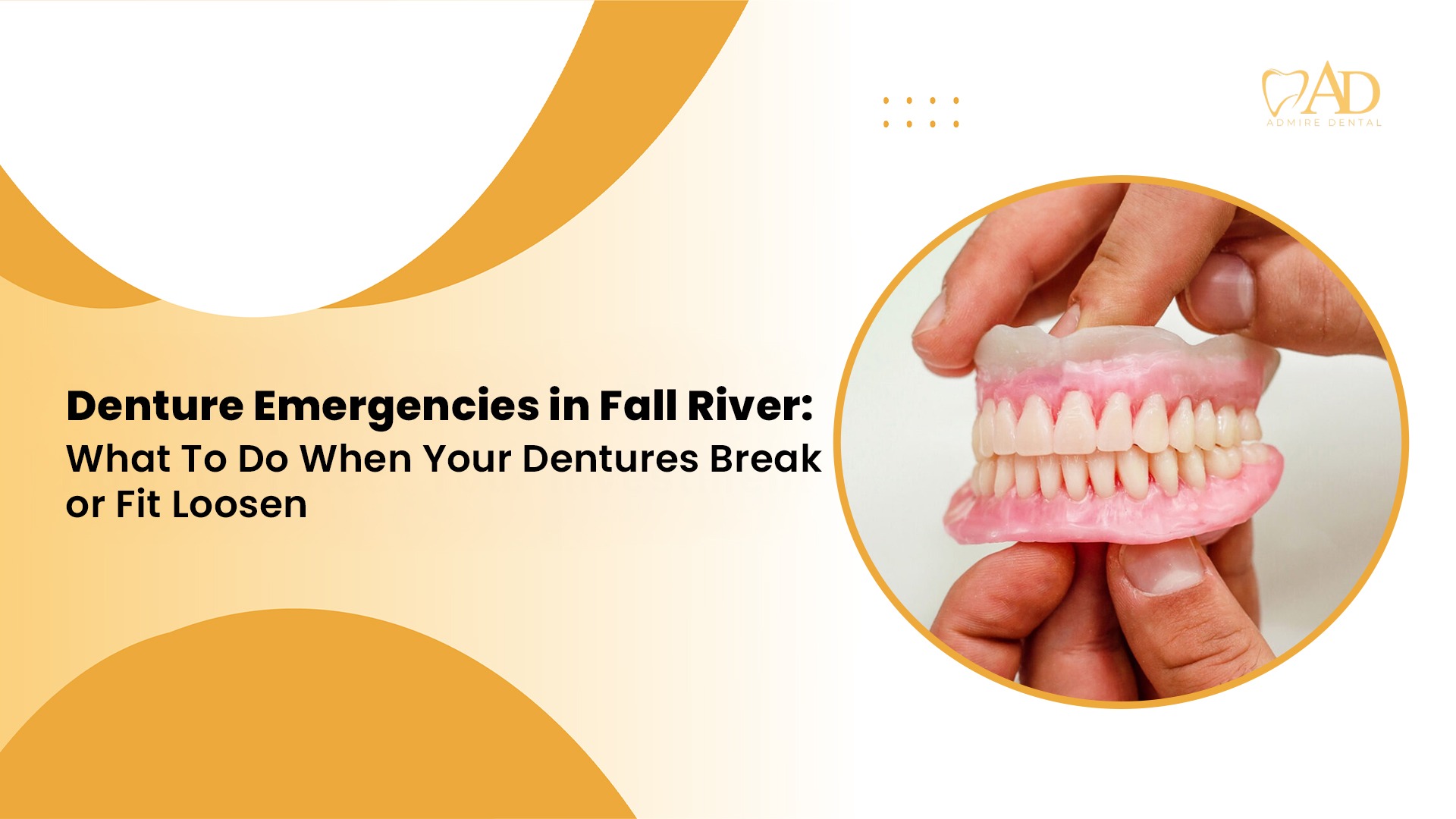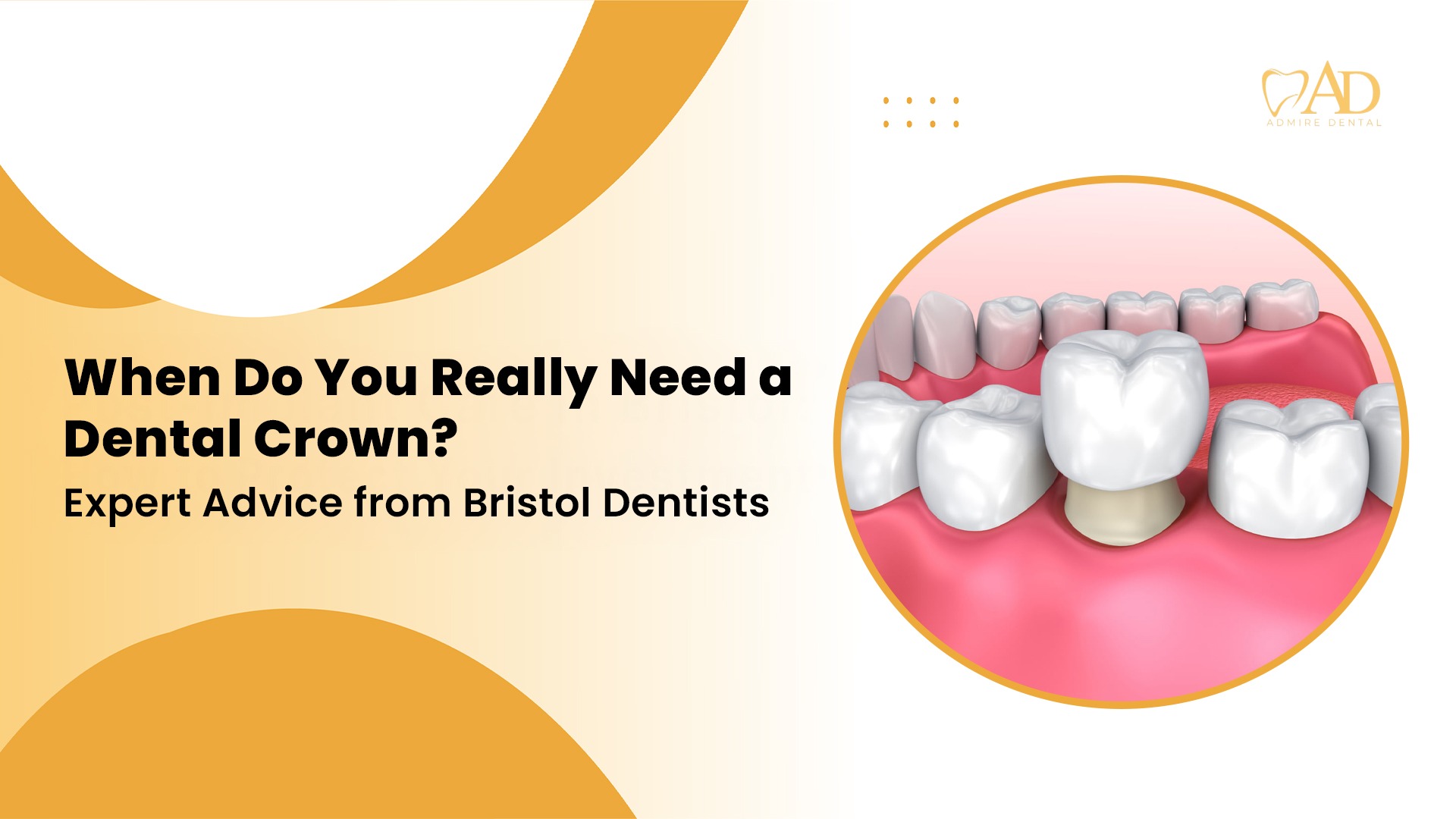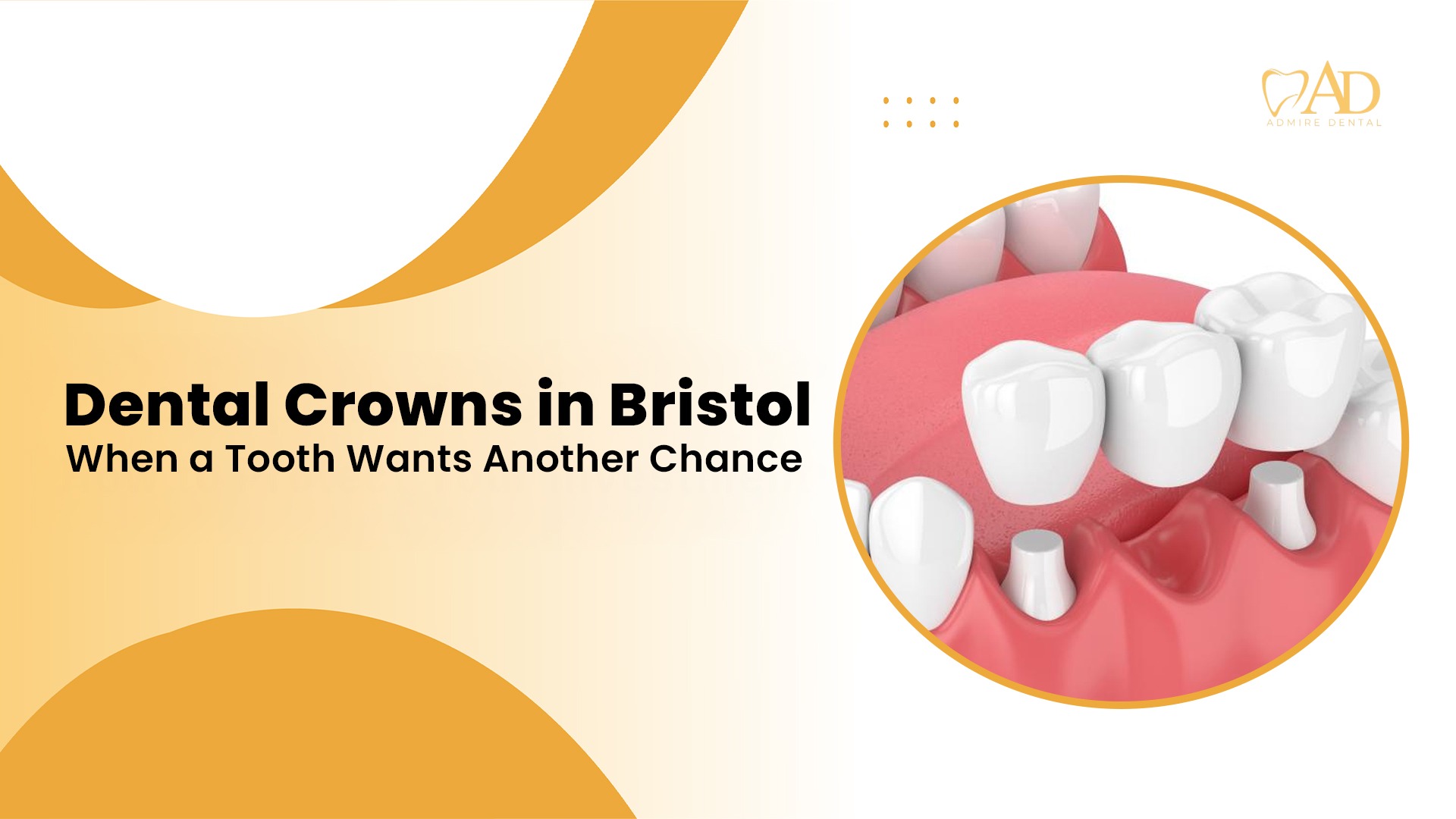If your tooth has been weakened by decay, cracked from an injury, or feels extremely sensitive after a root canal, you might have heard your dentist mention a dental crown. But what exactly is a crown, and how do you know when it’s truly necessary?
Dental crowns are among the most common restorative treatments recommended by dentists worldwide. They not only restore the appearance of your smile but also bring back the strength and functionality of a damaged tooth. In this blog, we’ll break down when you actually need a dental crown, how the process works, and what to expect when getting dental crowns in Bristol.
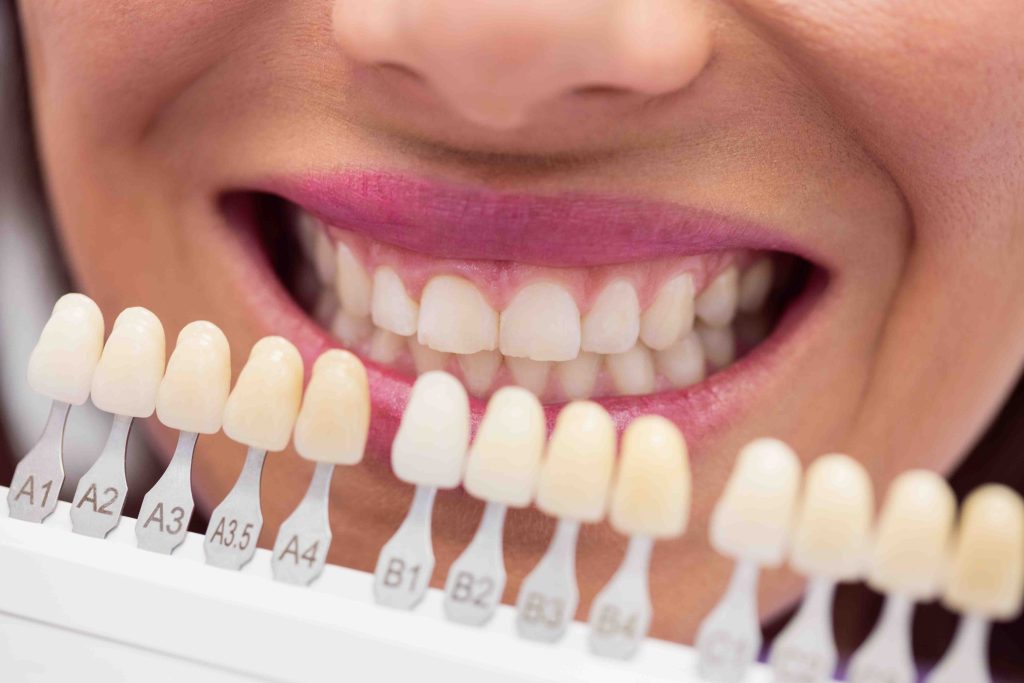
What Is a Dental Crown?
A dental crown, often referred to as a “cap,” is a custom-made covering placed over a damaged or weakened tooth. It restores the tooth’s original shape, size, and strength while improving its appearance.
Crowns are typically made from materials like porcelain, ceramic, metal alloys, or a combination of both. The choice depends on the tooth’s location, your budget, and aesthetic preferences.
In simple terms, think of a dental crown as a protective helmet for your tooth—it keeps it safe from further harm and makes it look brand new again.
When Do You Really Need a Dental Crown?
There are several situations where getting a crown is the best way to protect your teeth and maintain long-term oral health. According to expert Bristol dentists, here are the most common reasons:
1. To Restore a Severely Decayed Tooth
When a cavity becomes too large for a filling to repair, the remaining tooth structure may be too weak. A dental crown can cover and protect it, preventing breakage and future infection.
2. After a Root Canal Treatment
A tooth that’s undergone a root canal often becomes brittle and prone to cracks. Placing a crown over it restores its strength and ensures long-lasting protection.
3. To Repair a Cracked or Broken Tooth
If you have a tooth that’s cracked, chipped, or fractured, a crown acts as a shield to keep it intact while restoring its natural shape and appearance.
4. To Replace a Large Filling
Over time, large fillings can weaken a tooth. When a filling starts to fail or the surrounding tooth becomes fragile, a crown provides stability and support.
5. To Improve the Appearance of a Tooth
Sometimes, crowns are placed for purely cosmetic reasons — to cover discolored, misshapen, or uneven teeth and create a balanced, confident smile.
6. To Support a Dental Bridge or Implant
Crowns are also used to anchor dental bridges or cap dental implants, offering both structural and aesthetic benefits.
Types of Dental Crowns Used in Bristol
Dentists in Bristol offer a range of crown materials to suit every need and budget. Here are the main types:
- Porcelain Crowns: Ideal for front teeth due to their natural color and shine.
- Ceramic Crowns: Strong, durable, and closely mimic real enamel.
- Metal Crowns: Made from gold or metal alloys; best for molars where strength is more important than appearance.
- Porcelain-Fused-to-Metal (PFM): Offers both strength and aesthetics, commonly used for both front and back teeth.
- Zirconia Crowns: One of the latest and most durable options—highly resistant to wear and fracture.
Your dentist will help you choose the best material depending on where the crown is being placed and your personal preferences.
The Dental Crown Procedure: Step by Step
Getting a dental crown in Bristol typically takes two visits, although same-day crowns are also available at some clinics.
Step 1: Consultation and Examination
Your dentist first examines the affected tooth, takes X-rays, and determines whether a crown is necessary.
Step 2: Tooth Preparation
The damaged part of the tooth is removed, and the remaining structure is shaped to fit the crown. A temporary crown is placed to protect the tooth.
Step 3: Impression or Digital Scan
An impression (or 3D scan) of your tooth is sent to a dental lab where the custom crown is crafted.
Step 4: Crown Placement
Once ready, your permanent crown is fitted, adjusted, and securely bonded. The result looks and feels like a natural tooth.
Benefits of Getting Dental Crowns in Bristol
Choosing a dental crown offers more than just aesthetic improvement — it’s an investment in your long-term oral health.
Protects Weakened Teeth: Prevents cracks and further damage.
Restores Functionality: Enables you to chew and bite comfortably again.
Improves Aesthetics: Matches your natural teeth for a flawless smile.
Long-Lasting Durability: With proper care, crowns can last 10–15 years or longer.
Boosts Confidence: You can smile freely without worrying about broken or discolored teeth.
Caring for Your Dental Crown
Maintaining your crown is simple but essential to prolong its life. Here are a few tips:
- Brush and floss regularly to prevent plaque buildup.
- Avoid chewing hard foods like ice or candy that may crack the crown.
- Visit your dentist every six months for professional cleanings and checkups.
- If you grind your teeth, consider wearing a night guard to protect your crown.
With proper care, your dental crown will remain strong and beautiful for many years.
Why Choose Bristol Dentists for Dental Crowns?
Bristol dentists are known for their advanced dental technology, patient comfort, and expertise in cosmetic and restorative dentistry. Many clinics use digital scanning, same-day crown technology, and high-quality materials to ensure natural-looking, durable results.
Whether you need to fix a single tooth or restore your entire smile, you’ll find experienced professionals in Bristol who prioritize precision, comfort, and your long-term dental health.
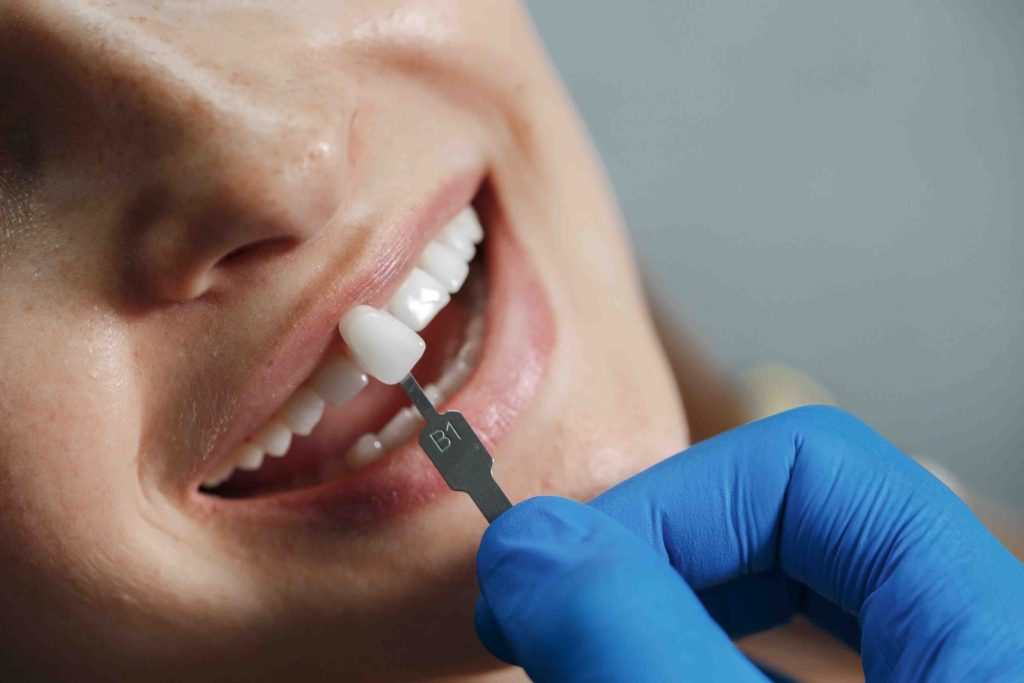
FAQs
1. How long do dental crowns last?
With good oral hygiene and regular dental checkups, dental crowns can last 10–15 years or even longer.
2. Are dental crowns painful to get?
No, the procedure is painless. Local anesthesia is used to keep you comfortable throughout the process.
3. How much do dental crowns in Bristol cost?
The cost depends on the material and clinic, but porcelain and zirconia crowns are slightly more expensive due to their natural look and durability.
4. Can I eat normally after getting a dental crown?
Yes, once your permanent crown is placed, you can eat and chew as usual. Avoid sticky or hard foods for the first 24 hours.
5. Do dental crowns look natural?
Absolutely! Modern crowns are designed to match your existing teeth in color, shape, and texture, giving you a seamless, natural smile.
Final Thoughts
A dental crown is more than a cosmetic fix—it’s a reliable way to restore your smile’s strength, function, and confidence. If you’re experiencing tooth pain, sensitivity, or visible damage, don’t wait until it worsens. Visit an experienced dentist in Bristol today and find out if a dental crown is the perfect solution for your smile.

